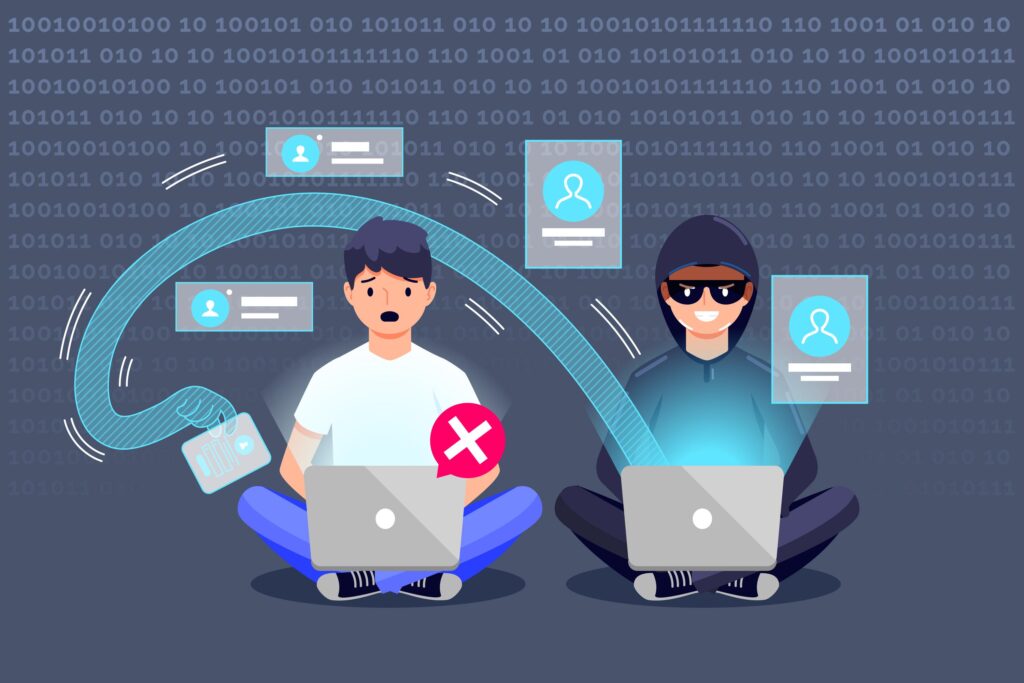In today’s digital age, computers play an integral role in our daily lives. From communication and work to entertainment and shopping, we rely on computers for almost everything. However, with the conveniences of technology come certain risks, one of the most prevalent being computer hacking. In this article, we’ll explore how computers are hacked and what steps you can take to protect yourself from such cyber threats.

What is Computer Hacking?
Computer hacking refers to unauthorized access or manipulation of computer systems, networks, and data. Hackers, the individuals who carry out these activities, exploit vulnerabilities in software, hardware, and human behavior to gain access to sensitive information, disrupt operations, or even cause financial and personal harm. Understanding how hackers infiltrate systems is crucial to safeguarding your digital presence.
Common Hacking Techniques
-
Phishing: Phishing is a technique where hackers send deceptive emails, messages, or websites that appear legitimate to trick users into revealing personal information, such as passwords and credit card details.
-
Malware: Malicious software, or malware, includes viruses, worms, Trojans, and ransomware. These programs are designed to infiltrate a computer system, steal data, or cause damage.
-
Brute Force Attacks: In this method, hackers use automated tools to guess passwords or encryption keys by trying all possible combinations until the correct one is found.
-
Social Engineering: Hackers manipulate individuals into divulging confidential information through psychological manipulation. This can involve exploiting trust, fear, or a sense of urgency.
-
Unpatched Software: Hackers often target known vulnerabilities in outdated or unpatched software, gaining access to systems that haven’t been updated with the latest security fixes.
-
Man-in-the-Middle (MitM) Attacks: Here, hackers intercept communication between two parties to eavesdrop, alter messages, or steal information.
Protecting Against Hacking
While the methods hackers employ can be sophisticated, you can take several measures to significantly reduce your risk of falling victim to a cyberattack.
-
Use Strong, Unique Passwords: Create complex passwords using a combination of letters, numbers, and symbols. Avoid using easily guessable information like birthdays or names. Consider using a reputable password manager to generate and store passwords securely.
-
Enable Two-Factor Authentication (2FA): 2FA adds an extra layer of security by requiring a second form of verification, such as a code sent to your phone, in addition to your password.
-
Stay Updated: Regularly update your operating system, software, and applications. Hackers often exploit known vulnerabilities in outdated software.
-
Be Cautious with Emails: Be wary of unsolicited emails or messages, especially those asking for personal information or containing suspicious links. Double-check the sender’s email address and verify the legitimacy of the request through other means.
-
Install Antivirus Software: A reliable antivirus program can detect and remove malware from your computer. Keep the antivirus software updated for optimal protection.
-
Educate Yourself: Learn about different hacking techniques and common scams. Awareness is your first line of defense against cyber threats.
-
Secure Your Wi-Fi: Set a strong password for your Wi-Fi network and use WPA3 encryption if possible. This prevents unauthorized access to your network.
-
Backup Regularly: Regularly back up your important data to an external hard drive or a secure cloud service. In case of a ransomware attack, you won’t lose your valuable information.
-
Be Careful on Public Wi-Fi: Avoid accessing sensitive accounts or making online transactions when connected to public Wi-Fi networks, as these are more vulnerable to hacking.
-
Monitor Financial Statements: Keep an eye on your bank and credit card statements for any unauthorized transactions. Act quickly if you notice any discrepancies.
Conclusion
Computer hacking is a real and growing threat in our interconnected world. However, armed with knowledge and proactive measures, you can significantly reduce the risk of falling victim to such attacks. By adopting strong security practices, staying informed about the latest threats, and being cautious in your online activities, you can enjoy the benefits of technology while keeping your digital life safe from the hands of hackers. Remember, your cyber safety is in your hands.